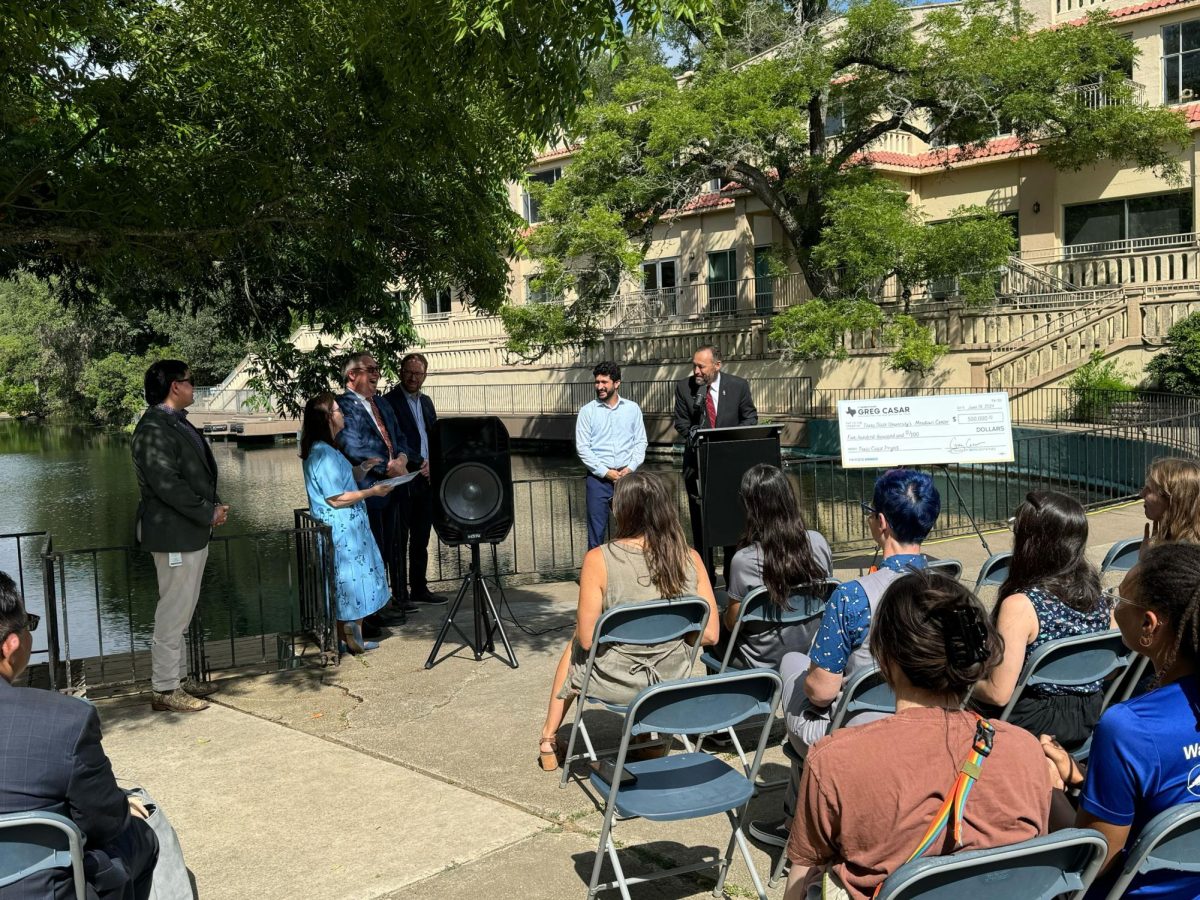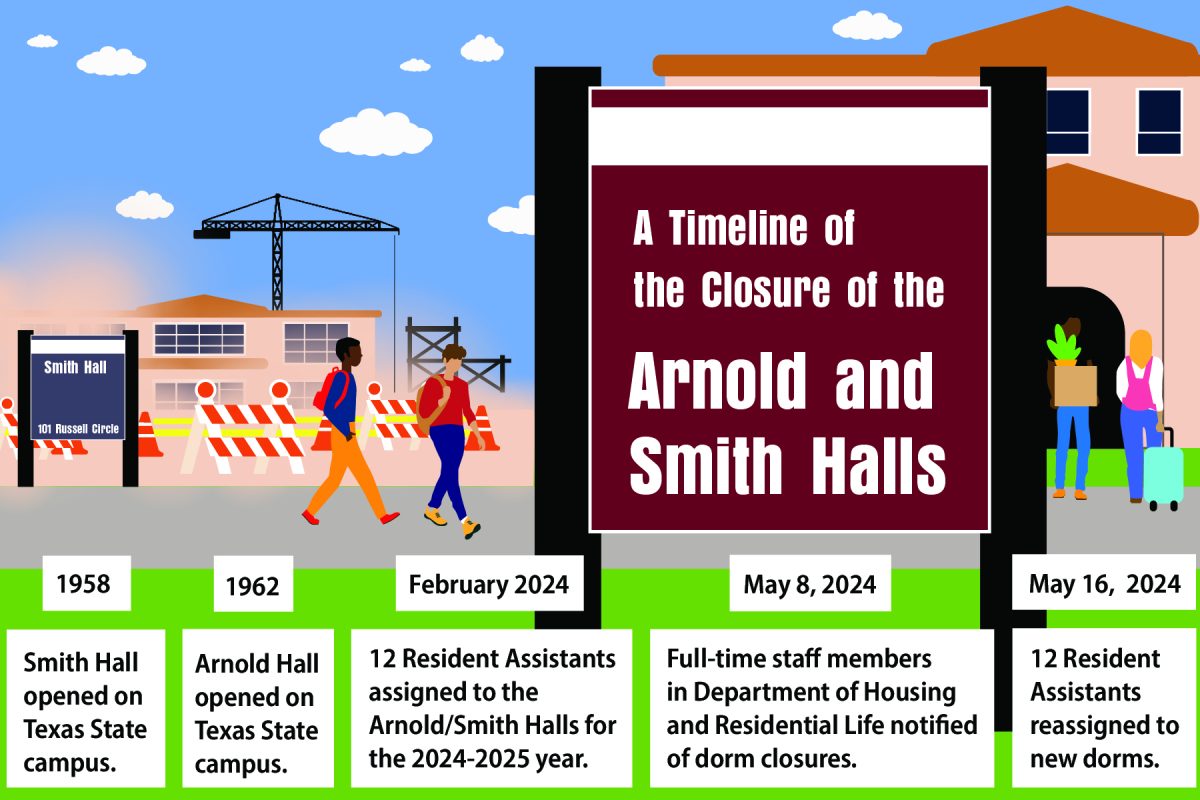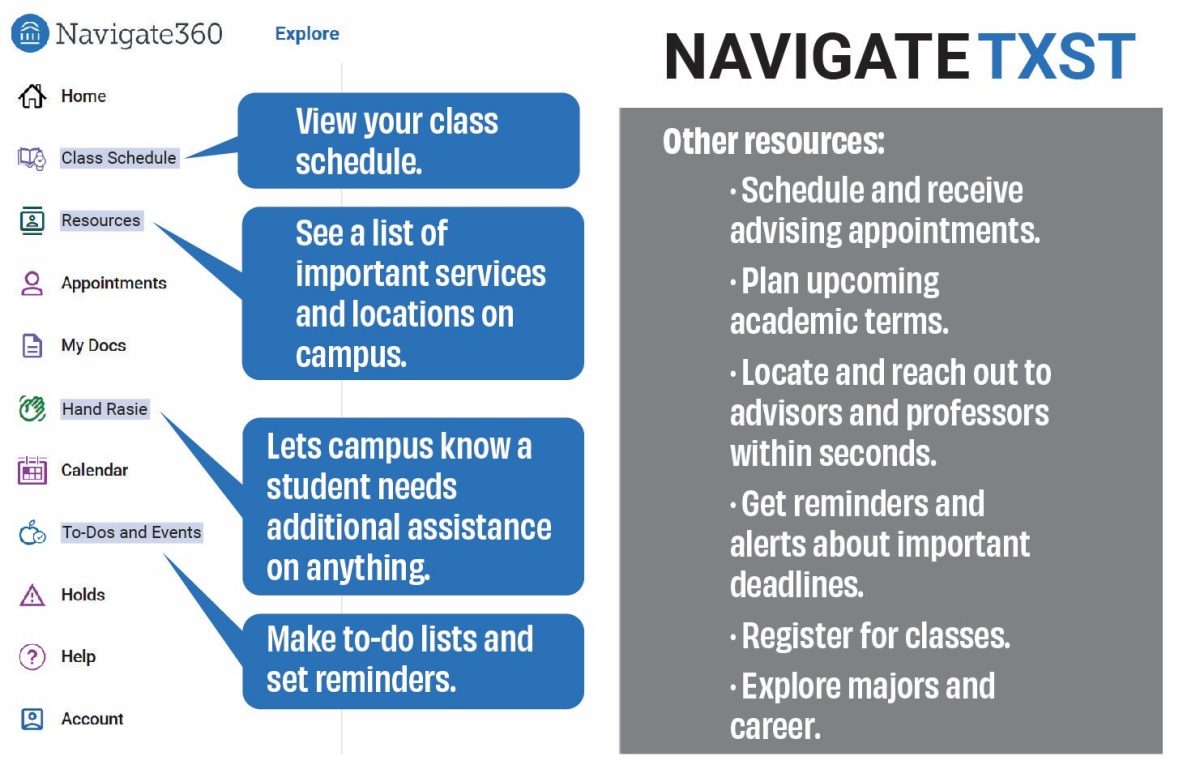Being informed about the different kinds of leases can help students find the right kind of housing to fit their needs, especially when transitioning from on to off-campus living spaces.
A pamphlet from the Texas State Off-Campus Living Office defines two types of leases: traditional/conventional and rent-by-the-bed, otherwise known as an individual or installment lease.
A traditional lease is when roommates split rent amongst themselves under one lease. If a roommate leaves, the remaining roommates become responsible for the remainder of the rent.
A rent-by-the-bed lease is when each individual signs their own lease and is responsible for the cost of his or her bedroom and all the common areas: the kitchen, balcony and living room. Each person is responsible for only his or her rent, even if a roommate moves out.
Rent-by-the-bed leases are the most common agreements found in student apartments. Understanding the limitations of this type of lease can help students make a more informed decision before signing.
A way to think of rent-by-the-bed leases is to imagine the lease is no longer the whole apartment—privacy ends at the bedroom door, according to Sylvia Holmes, former Texas State student attorney.
“In a bedroom-only lease, I can only use the common spaces jointly and then my private bedroom,” Holmes said.
While rent-by-the-bed leases relinquish total rights over the whole of the apartment, this type of lease does make it easier to sublease without the permission of the other roommates. It may not be considerate, but it is legal as long as the landlord and original renter are in agreement, according to Holmes.
Subletting in rent-by-the-bed contracts requires the original tenant to remain responsible for all costs and installment payments. Some rent-by-the-bed apartments will allow tenants to assign or terminate contracts.
More commonly, student housing apartments nationwide have adopted what is called an annual installment contract, which is a predetermined amount the renter agrees to pay over the course of a year or however long the lease lasts. However, if the renter is in violation of their lease agreements at any time, the landlord can demand immediate payment of all outstanding installments.
In a hypothetical situation, Holmes explains the risks associated with installment leases.
“So the landlord says to you that you’re going to pay 6,000 dollars for the whole year, and you can pay in 12 monthly installments of 500 dollars,” Holmes said. “Your first installment is due August 1, but you can’t move in until August 20. You’re essentially losing 20 days of rent because you’re not paying per month, you’re paying 6,000 dollars yearly as they financed it to you by letting you pay it out 500 dollars a month.”
Understanding the technicalities of leases can be difficult, but Texas State offers plenty of information on the subject. Off-Campus Living highly encourages students to review their lease at the Attorney for Students Office before signing anything. The service is free to all current Texas State students.
“When you go to look at the complex and you still have an application, ask them for a copy of their lease,” Holmes said. “If they do not provide you with a copy of the lease, walk away. That is like a car dealer who has you on the lot but won’t let you test drive.”
Students should also be aware that current Texas law does not recognize email as a formal correspondence. All major maintenance requests and move-out notices should be submitted in writing through the U.S. Postal Service so the request is date-stamped.
Before moving to any off-campus housing, tenants are usually required to fill out an “inventory and conditions” form. Margaret Yackel, Housing and Residential Life coordinator, recommends students video their entire apartment before they move in.
“From the outside, walk all the way through and video everything in the apartment,” Yackel said. “Then we recommend students take that and email it to someone so it’s date-stamped and they have that as proof.”
The Attorney for Students Office and the Off-Campus Student Housing Office have resources available for students and parents who are curious and want to learn more. Students can schedule appointments for both offices online at the Texas State website or go to their offices to pick up brochures.
Exploring rent-by-the-bed apartment leases
June 19, 2017
Apartments that cater to students are not always what they seem. Be sure to get numerous opinions before signing a lease.
Photo by Robert Black
Donate to The University Star
Your donation will support the student journalists of Texas State University. Your contribution will allow us to purchase equipment and cover our annual website hosting costs.




























